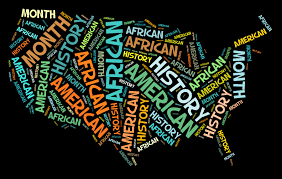OPINION: We Forgot Why We Celebrate Black History Month
After centuries of oppression, it’s time to remember why we really need a Black History Month

Many Americans have forgotten why February has a special meaning for African Americans being that it is Black History Month. Some are uneducated on why this month is celebrated, but there are several things that commemorate Black history. One was the several achievements made by African American pioneers. Following this was recognizing monumental figures who played key roles in Black history.
It began with Carter G. Woodson, who founded Negro History Week on Feb. 7, 1926. This day sparked the first official celebration that ultimately led to what it is now: Black History Month. Although Woodson held a Ph.D. from Harvard University and published the first issue of The Journal of Negro History, the main recognition to the publication is currently ran by Pero. G. Dagbovie. Dagbovie, a professor at Michigan State University, is currently in relevance today after those 105 long years prior.
February is also the birth month of two more prominent figures, such as President Abraham Lincoln, who was born on Feb. 12, 1809. While president, Lincoln issued the Emancipation Proclamation, which freed the slaves on Jan. 1, 1863. Another prominent figure was Frederick Douglas, born on Feb. 14, 1818. While we honor Douglas as one of the first leaders in human rights movements, his most important achievement was becoming one of the first high ranking Black citizens in the U.S. government. It’s outstanding citizens like Woodson and Douglas and so many more who have become Black icons for their achievements.
According to the Natural Resources Conservation Service, the 13th Amendment was the final turning point, leading to the abolishment of slavery. Congress adopted this amendment Feb. 1, 1865 leading to so-called chain-reactions that went into the early nineteenth century. One can view this complete list of accomplishments that occurred, however, the major event occurred on Feb. 10, 1964. This was the Civil Rights Act that was passed, following 12 suspenseful days of debate. The House of Representatives decision was closely made, passing with a vote of 290-130. This aided in lessening discrimination in the U.S. based on race, color, religion and national origin.
As the country celebrates Black History Month, many have concerns on how to appropriately celebrate, and teach Black history in school settings. According to an article by USA Today, it can be easy for a celebration, like serving “black food,” to become racially insensitive. April Reign, who started the Twitter hashtag #OscarsSoWhite, said celebrating Black history should have an educational component to it. Celebrating Black history can be as simple as supporting Black-owned businesses. Educating yourself about Black history and systemic racism is essential to understanding modern day movements such as the George Floyd protests.
It is important that this country grants those affected by generations of oppression a form of recognition and celebration of their ancestors’ struggles and triumphs. Non-Black allies can avoid disrespectful tactics by humbling ourselves and doing our own research on Black history. Black History Month comes only once a year, and although it is the shortest month, it remains a very important one in U.S. history.


